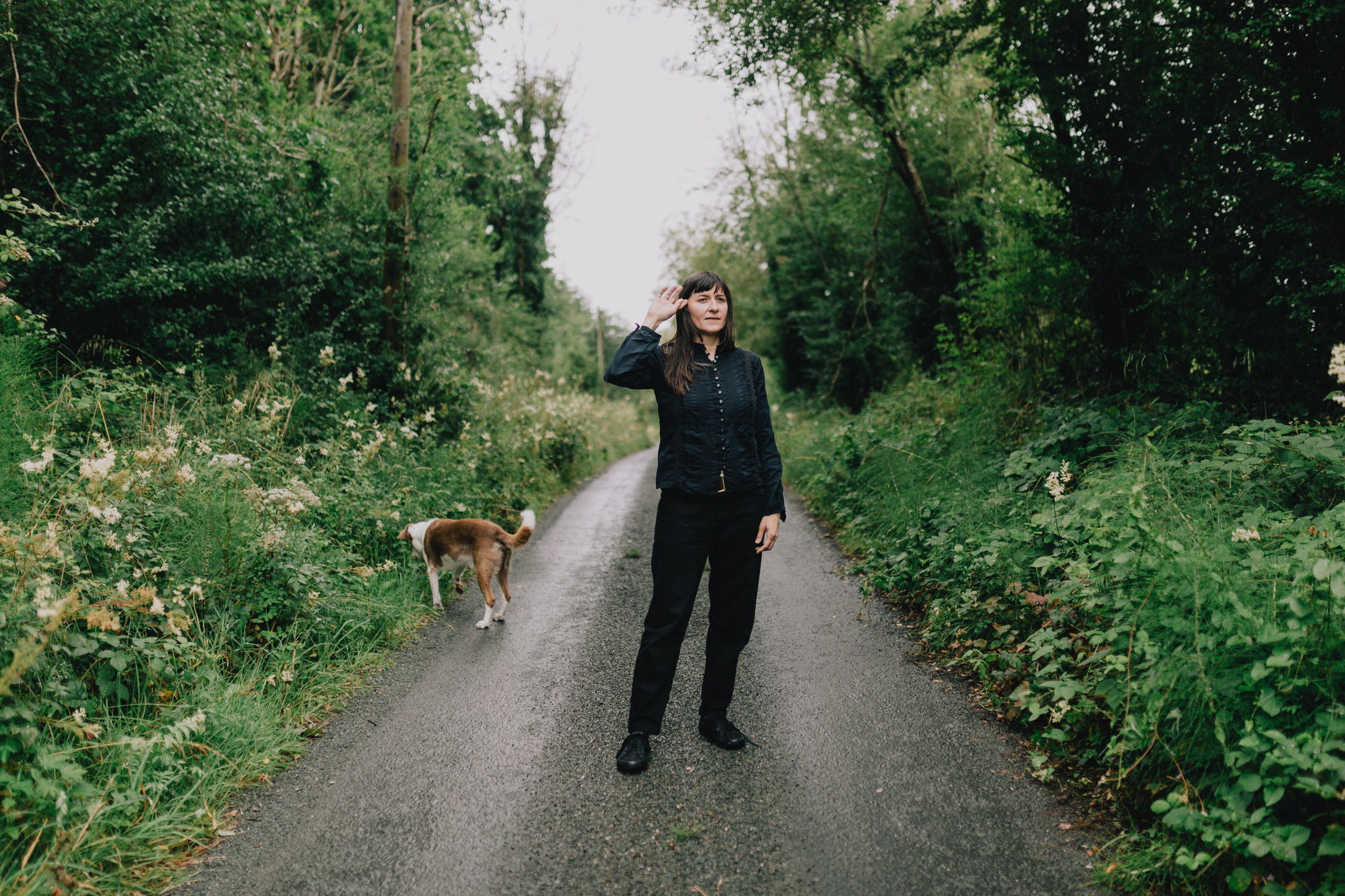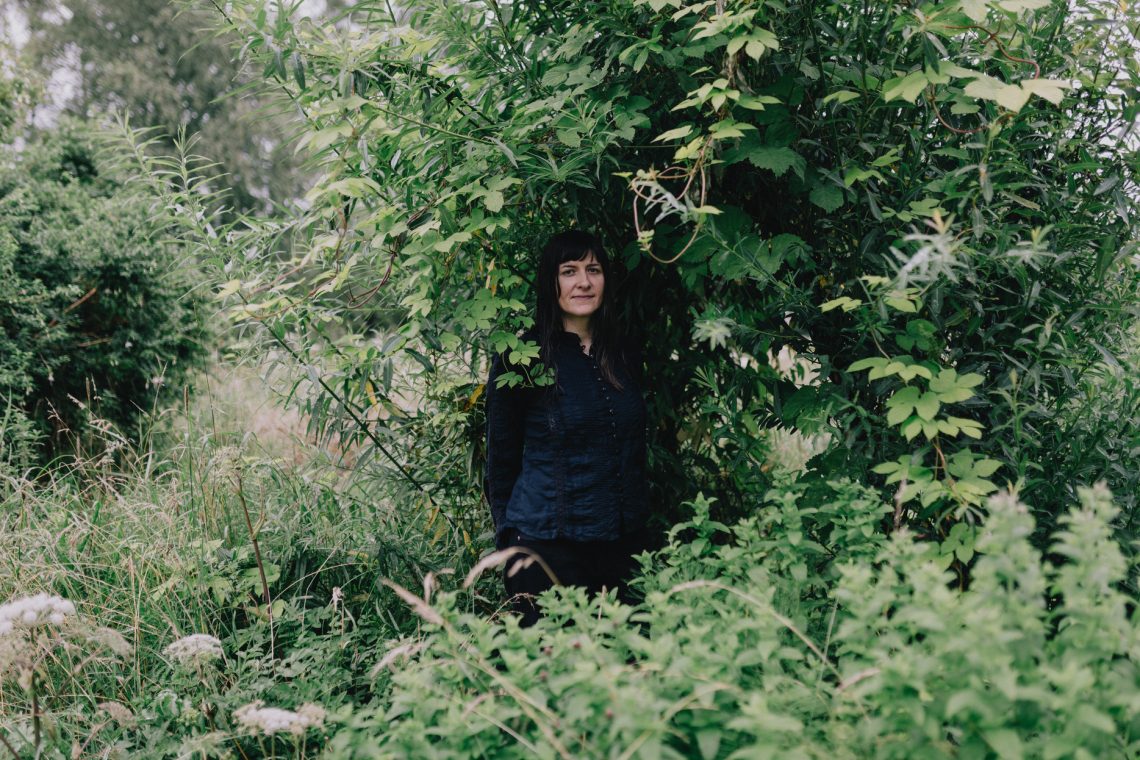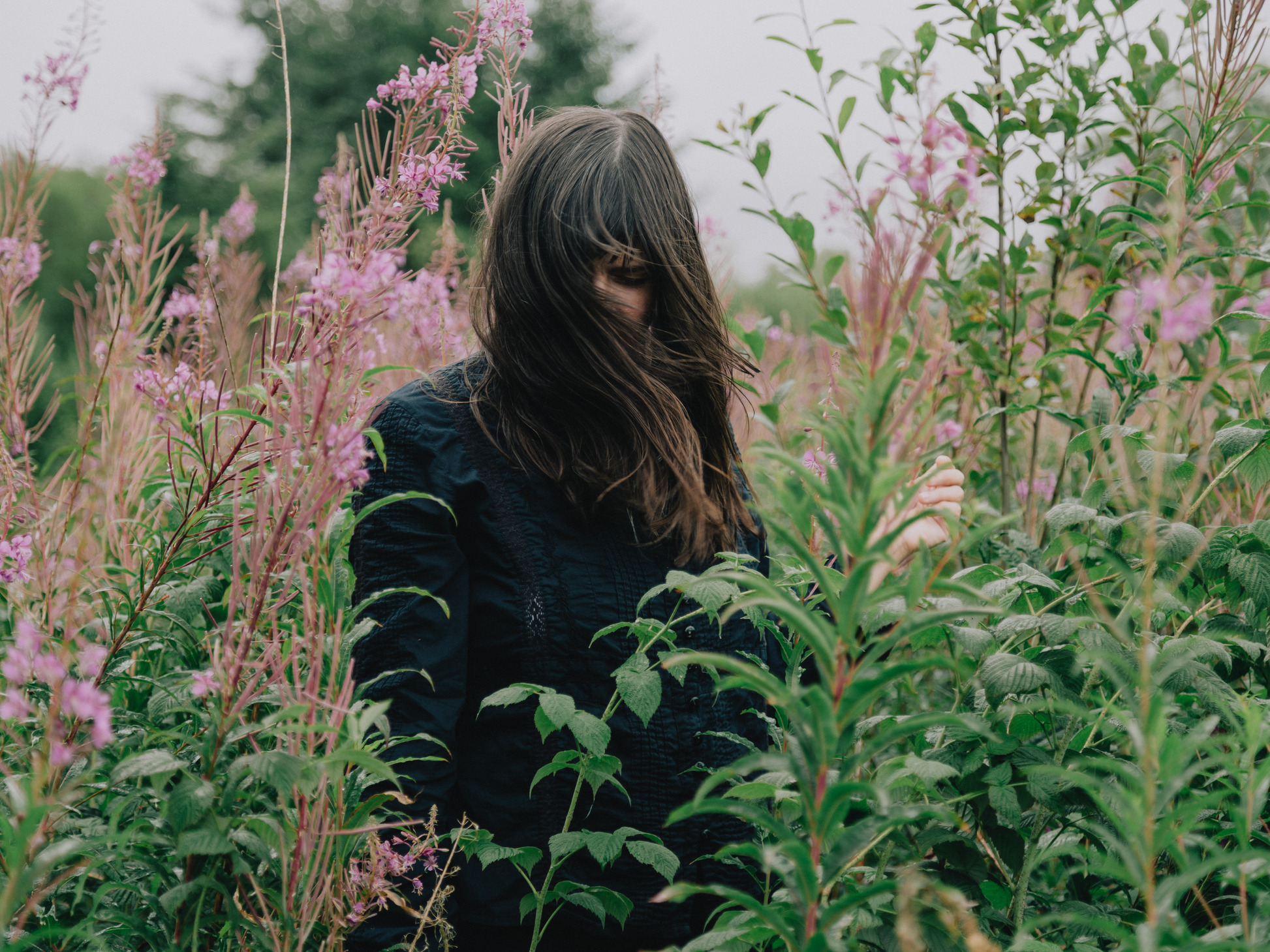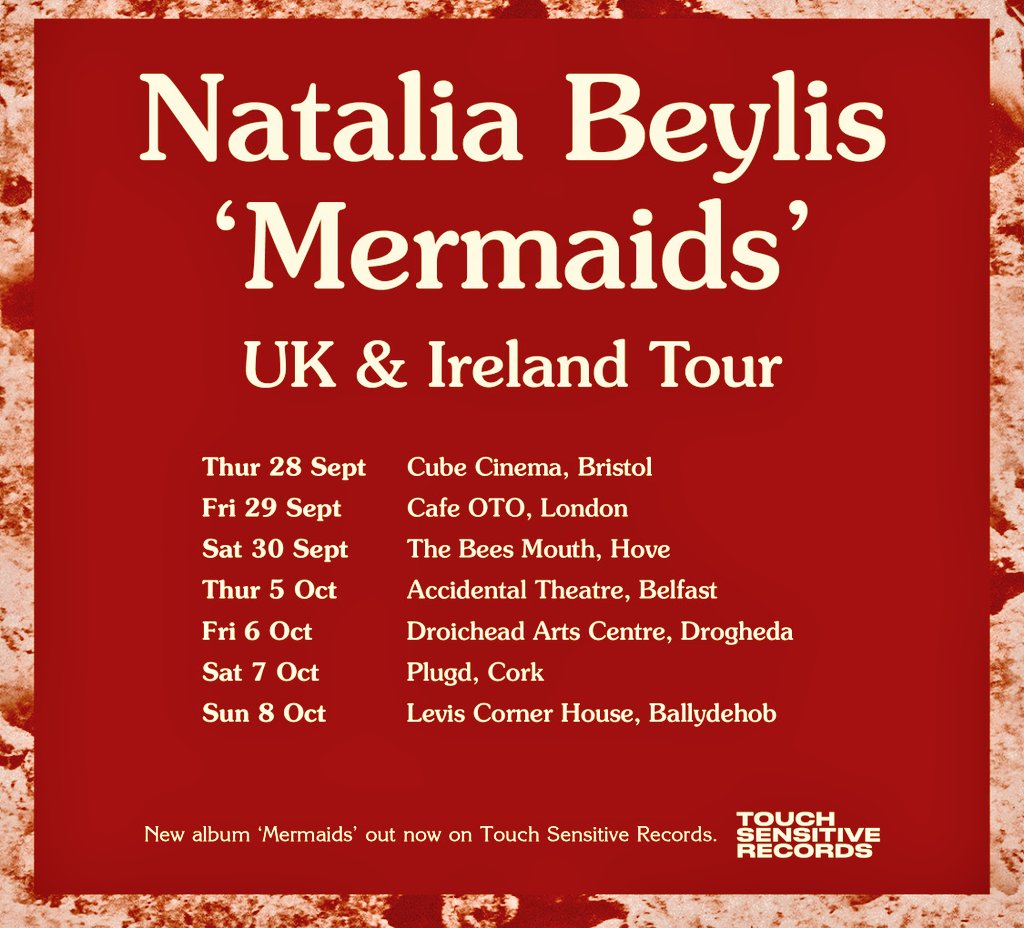The Leitrim-based sound artist speaks to Ruairí McCann about her new album, Mermaids, and her music’s relationship to place, language, and community
Photos by Aislinn McGinn
The great Leitrim-born author John McGahern spent a large portion of his adulthood outside of the country and yet his artistic life remained there, rooted, and deeply concerned with recreating on the page its people, sights, sounds and rhythms, to an almost hypnotic degree. To the extent that the last scene of his last book, Memoir, is occupied with a stroll along the lanes, streams and hedgerows which define and feed Leitrim and much of the west like capillaries. The matter at hand isn’t some imposed drama, but the riverbank and its jewels: bird droppings and fishbones, the comings and goings of an otter and her young, and the beauty of the orchid and the windflower.
This serious preoccupation of using art as a nurturing act of tuning one’s own sense of self and binding to the inhabitants and rhythms of a particular place reminds me of the work of musician Natalia Beylis. Rural Leitrim is also the nucleus of Beylis’ cosmology, though she arrived there as an adult rather than a child. Born in Kyiv and raised near Baltimore in the United States, Beylis would live in several cities (Pittsburgh, New Orleans, Dublin) before making the move to rural life in the late 2000s, specifically a farmhouse in west Leitrim. Since then, she has been making music born out of deep listening; to her home, her neighbours, wildlife and the elements, and which then radiates out to other people, places and emotions, past and present.
This impetus can be heard in Beylis’s various projects and bands, such as the free-improv psychedelia of Woven Skull, but it’s most pointed in her solo music, where through the often-twinned prisms of field recordings and keyboard instruments she delves into an inner and collective habitus. Her new album Mermaids was born out of a desire to create this sense of place, her encounter with a particular, idiosyncratic instrument and also the setting of an image from the past. It began when a trip to a recycling centre dredged up a foundling – a damaged but workable CRB Elettronica Ancona electric keyboard. Piano was Beylis’s first instrument and years of playing cemented an admiration for individual instruments and their intricacies.
“I grew up playing piano, so I’ve been around keyboard instruments since I was really young,” says Beylis. “I was never going to be a virtuosic concert pianist, so I think what kind of really speaks to me are the sounds that individual pianos, keyboards and organs make. I like the weird dissonant sounds that come up from keyboard instruments especially when they start to get older and out of tune, and the different personalities that come out of them.”
The embrace of these eccentricities can be heard on She Came Through the Window to Stand by the Door (2023), an album with cellist Eímear Reidy where the venerable William Telford Organ of St George’s Church in Carrick-on-Shannon, at nearly 180 years old possibly Ireland’s second oldest functioning organ, provides a fulsome but shifting sounding board for Reidy’s striations and speculations. There’s also her 2016 album, Green Bird Mountain, where an out-of-tune H. Lange & Co, Berlin grand piano, through its off-kilter timbres and Beylis’ onward rush of cascading notes, resonates with the fluctuations of an uncertain heart.
In the case of Mermaids, the unstable, aquatic quality of the Ancona found its focus with a photograph, the album’s cover, depicting Beylis’s mother and friends on a Black Sea holiday in 1967. It inspired Beylis to make an album that could match the photo’s atmosphere of play and peace, placing herself and the listener there in the moment. The beautiful results, which Beylis described as “the longest process of recording that I have ever undertaken” due to a variety of technical challenges, unfurls on a ballast of mesmerizing rhythms, such as the meditative pulse underpinning ‘Goodnight, Birds’, in tandem far-reaching improvisations, such as the album’s title track and centrepiece.
Two tracks also feature field recordings punctuated by chickens and ducks who moan, yap and yell like miniature, feathered blues singers, in tune with another strand of her work, communication. There’s the menagerie of accents, expressions, and yarns, from animals of all kinds, that populate her ambitious field recording project The Sunken Hum, the psychedelic-linguistic play of her 2021 album Invaded by Fireflies and the use of language lesson tapes in recent live sets. I asked Beylis about this interest in language and she raised her immigrant upbringing and the love of creative, linguistic “detective work”.
“I grew up in a Russian-speaking family and English was our second language, and I think I’ve always had an interest in the way people speak,” says Beylis. “I love the sounds of different ways people put things together, especially when it’s not someone’s native language. I always find there’s idiosyncrasies that go with the person, more so than the language […] I love snippets of conversation overheard, where you just get a few words and make up a whole story around it.”

This fascination with many different ways of speaking could also be traced to a democratic impulse that underlines her music, including its relationship to nature, which never slips into overly polished and cloying imagery of a lot of modern spiritualism, for even when her music finds itself in a mystical zone, it’s been led there by direct experience. Ideas like the ‘public domain of trees’, which influenced her and Reidy’s 2021 album Whose Woods These Are, suggest an egalitarian worldview. A belief in interconnectivity in direct opposition to capitalist ethos, which treats nature as a distinct entity, as mere material to be consumed by its insatiable hunger for profit. For Beylis, fostering ties with communal ties of all sorts is fundamental.
“I don’t exist in a vacuum,” she says. “I can’t imagine being able to do anything without having creative inspiration around me through nature, through people and through putting on gigs and being part of a community.” She emphasized not just a community of artists, but diverse communities, “…having friends who are farmers and hearing how they talk about the land and the poetic ways they see the world that I can’t even begin to fully understand because I haven’t spent all my time out on one piece of land for years and years, really studying it. So, I definitely feel like I’m quite lucky that I have so many really interesting people to buzz ideas with.”
The world then as revealed by Beylis’s music, and which informs it, is one of intimate symbiosis between humanity, fauna and flora, between the artist and their community, between art and life. They’re all overlapping roots in the rhizome of existence and in one of Irish music’s richest bodies of work. Ruairí McCann
Mermaids is out now via Touch Sensitive
Catch Natalia Beylis live at the following shows








